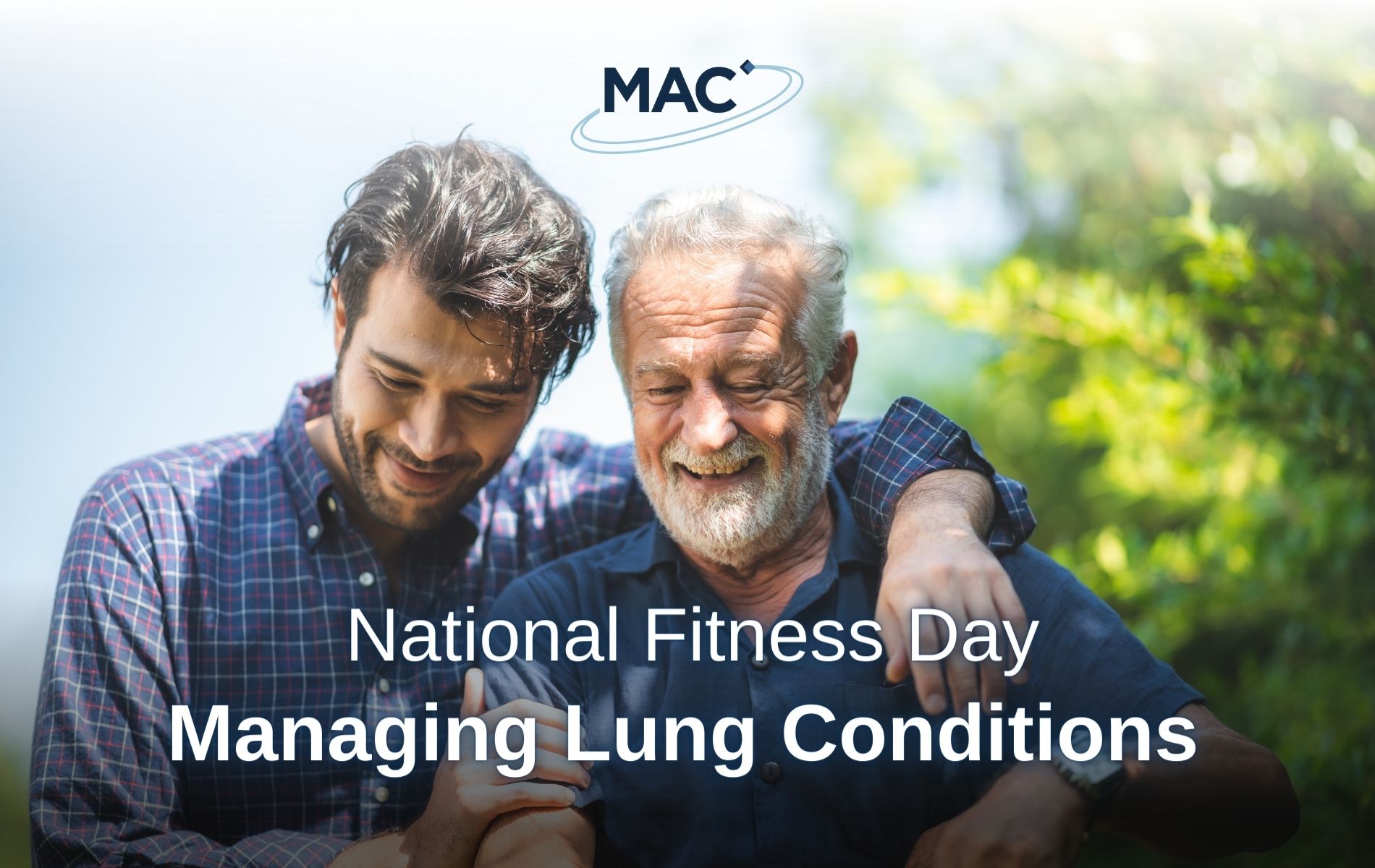Today on National Fitness Day, we are served a poignant reminder of the benefits of exercise to our overall health and wellbeing. This sentiment holds even more significance for those grappling with lung diseases such as Chronic Obstructive Pulmonary Disease (COPD) and Idiopathic Pulmonary Fibrosis (IPF).
National Fitness Day is the UK’s largest physical activity day and raises awareness of the role that physical activity plays in our lives, assisting us to lead healthier lifestyles. As we celebrate National Fitness Day, let’s delve into how physical activity can help improve lung function and manage symptoms for those living with the challenges of COPD and IPF.
IPF is a chronic and progressive lung disease characterised by the scarring of lung tissue. It primarily affects older adults and restricts their ability to breathe, leading to severe respiratory distress and reduced quality of life. The British Thoracic Society estimates that 30,000 people in the UK live with IPF and the treatment options remain limited1.
Similarly, COPD encompasses a group of lung conditions, such as chronic bronchitis and emphysema, which progressively impair lung function. According to the NHS 1.2 million people in the UK are living with COPD2.
The connection between exercise and lung health cannot be understated. While lung diseases like COPD and IPF restrict airflow and diminish lung capacity, exercise can be a powerful countermeasure. Engaging in regular physical activity improves lung efficiency, increases oxygen intake, and enhances overall respiratory function. For individuals battling these chronic conditions, exercise can offer a renewed sense of hope and improved quality of life.
Before embarking on an exercise routine, however, individuals with COPD and IPF should seek guidance from medical professionals. Customised exercise plans that consider the severity of the condition, physical limitations, and individual goals are essential. Proper warm-ups, cool-downs, and monitoring of vital signs are crucial during exercise to ensure safety. Adhering to professional advice and gradually increasing intensity are key components of a successful exercise regimen.
Other factors should also be taken into consideration such as the levels of air pollution, pollen levels, and humidity when exercising, as these can also impact someone’s ability to breathe easily.
Beyond the physical benefits, exercise instils a sense of achievement and fosters mental resilience. This is particularly relevant for those living with these conditions who attend pulmonary rehabilitation classes with others who share their experience. Participating in exercise routines with others who understand the challenges can create a shared sense of purpose and accomplishment.
For example, the NHS offer a pulmonary rehabilitation (PR) programme delivered in small groups which involves tailored physical exercise and information that helps people to better understand and manage their condition. The NHS report that this programme improves people’s ability to walk further and helps them feel less tired and breathless when carrying out day-to-day activities; 90% of patients who complete a PR programme have higher activity and exercise levels and report an improved quality of life3.
As National Fitness Day encourages us to prioritise our physical well-being, let’s remember that for individuals battling lung diseases such as COPD and IPF, exercise can be transformative. By embracing carefully tailored exercise routines and seeking professional medical guidance, individuals with lung conditions can experience improved lung function, increased endurance, and a heightened quality of life.
This National Fitness Day let’s celebrate the strength and determination of those facing lung diseases and applaud the power of exercise in helping them breathe easier and live fuller lives.
MAC Clinical Research is committed to improving the quality of life for those living with respiratory diseases through clinical trials. MAC is looking for volunteers with COPD or IPF aged 40+ (40-85 for COPD) to take part in their latest paid clinical research, investigating potential new treatment options.
The clinical trials are running at several MAC Clinical Research clinics, primarily across the north of England. Eligible participants for the trials will receive reimbursement for their time and commitment to the trial, plus reasonable travel expenses will be paid, or transport provided, as well as a full medical check-up.
For more information on either of the trials, please visit our IPF Clinical Trials webpage or our COPD Clinical Trials webpage.
1 British Thoracic Society – BTS ILD Registry Annual Report 2020: a summary of the UK IPF Registry for the general public
2 NHS – Digital service to manage high-risk chronic obstructive pulmonary disease (COPD) patients
3 NHS – Pulmonary Rehabilitation




